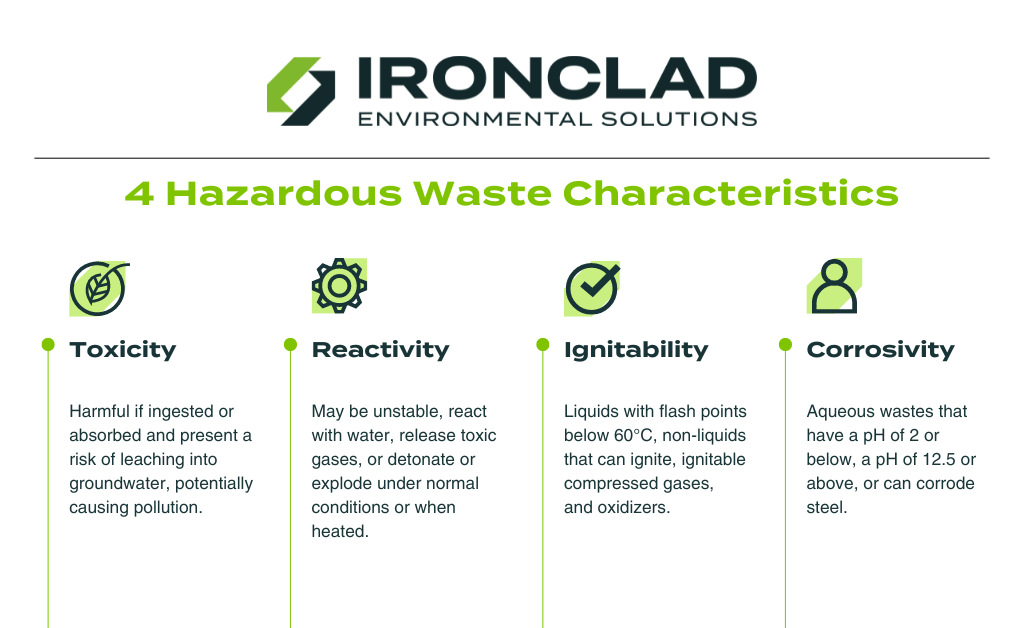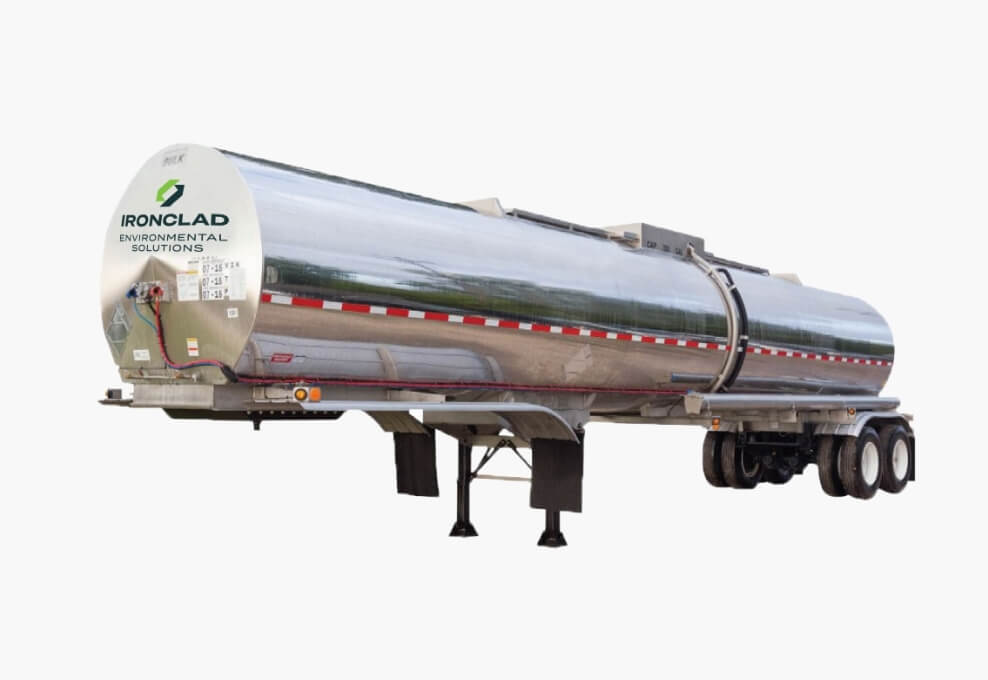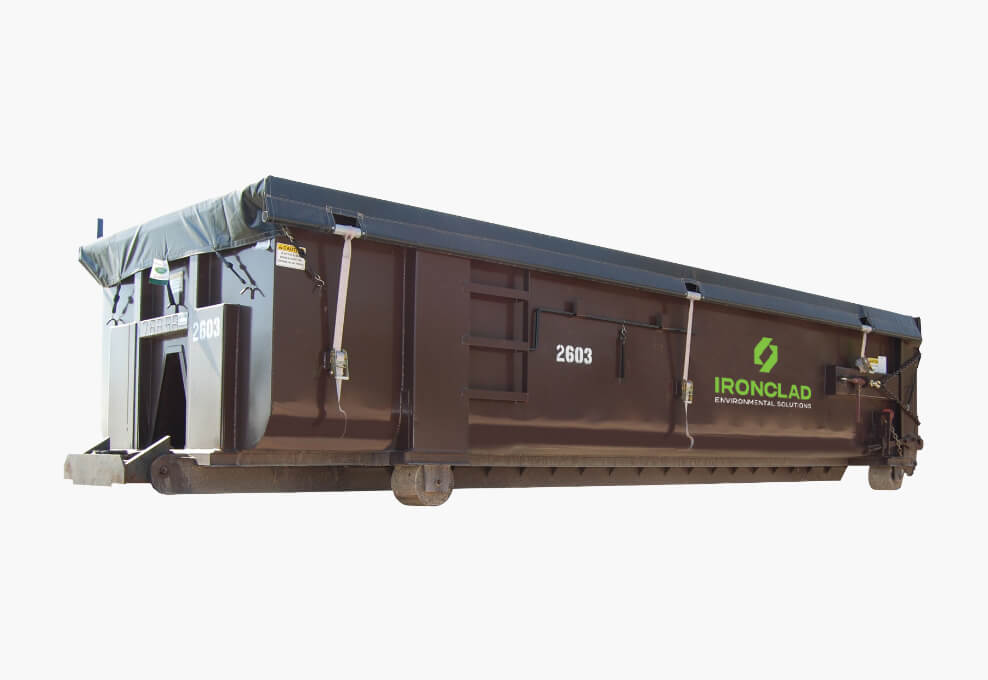Guidelines for Safe Hazardous Waste Transportation
Hazardous waste transportation requires strict compliance with regulations in order to ensure safety and prevent environmental harm on-site or during transport. It's also critical to have the right equipment that safely contains hazardous materials without risking accidental leaks or contamination.
Partnering with a knowledgeable and skilled company that deals with non-haz and hazardous waste management is critical for ensuring safety and compliance. With the right equipment and safety protocols in place, you can avoid costly mistakes and stay fully compliant with regulations.

Defining Hazardous Waste
Hazardous waste, as defined by the Environmental Protection Agency (EPA), "is a waste with properties that make it dangerous or capable of having a harmful effect on human health or the environment." According to federal guidelines, waste is classified as a “Listed” waste if it is from common manufacturing and industrial processes and can be generated from discarded commercial products; or a “Characteristic” hazardous waste if it presents one or more of the following characteristics:
- Toxicity, Reactivity, Ignitability, and Corrosivity
Materials that fall under these categories are considered dangerous and must be handled, stored, and transported with extra care to prevent contamination.
Common Hazardous Materials
The types of hazardous waste that hold specific requirements for transportation include:
- Industrial sludge - often produced during manufacturing processes and contains various toxic chemicals
- Solvents and heavy metals - found in paints, dyes, and printing materials
- Unrefined petroleum - byproducts of the oil and gas industry
Each of these materials requires specific containment and transportation to prevent leaks, spills, and contamination.
Industries Generating Hazardous Waste
The most common hazardous waste generators are in the construction and manufacturing industries.
Construction projects may produce hazardous waste like asbestos or lead-based materials, while manufacturing plants may deal with toxic chemicals, solvents, or byproducts that need to be safely contained and disposed of.
These industries must follow rigorous federal and state regulations to ensure that this type of waste is properly and safely stored, transported, and treated.
Legal and Regulatory Considerations to Keep in Mind
The Environmental Protection Agency (EPA) plays an integral role in setting the guidelines for how hazardous waste should be managed. Under the Resource Conservation and Recovery Act (RCRA), OSHA, & DOT regulations, businesses are required to follow detailed protocols when transporting hazardous waste, ensuring that materials are properly classified, packaged, labeled, and tracked from their point of origin to the disposal facility.
These regulations are in place to minimize the risks of spills, leaks, or other incidents that could cause harm.
Other Key Federal Laws and Regulations
To legally transport hazardous waste, companies must adhere to federal regulations set by the EPA and DOT.
Key transporter requirements include:
- EPA Identification Number: Hazardous waste transporters must obtain this identification number for tracking as the waste moves from its point of origin to the receiving facility.
- Waste Transporter Permit: Transporters of hazardous waste must secure permits to verify that they meet all safety and compliance standards for legal transportation.
By obtaining the transporter license and permits, companies can ensure they are legally compliant and equipped to safely transport hazardous waste.
Having the Right Equipment for Hazardous Waste Transportation
Compliance with hazardous waste regulations starts with having the right equipment. Using specialized equipment ensures that hazardous waste is safely contained, reducing the risk of accidents and making sure businesses meet all federal regulations.
At Ironclad Environmental, we offer high-quality equipment designed for the safe storage and transportation of solid hazardous waste.
Stainless Steel Tankers
Our DOT 407 Stainless Steel Tanker Trailers transport oil and petroleum products without risk of corrosion or contamination. They are built to withstand harsh conditions while providing an extra layer of protection against leaks and spills.

Roll-Off Boxes
Our Roll-Off Boxes are the solution for containing solid waste like industrial sludge, debris, and other hazardous materials. These durable boxes are designed for easy loading and unloading, and are used with roll-off trucks for smooth transportation to the TSD facility.

Hazardous Waste Treatment, Storage, and Disposal (TSD) Facilities
TSD facilities are licensed facilities permitted to handle hazardous materials, providing the necessary infrastructure to safely dispose of waste without causing harm to the environment. By ensuring that hazardous waste is sent to the designated facility, businesses not only protect themselves from environmental risks but also avoid costly fines or legal action.
Our Relationship with Permitted TSD Facilities
We have built strong partnerships with a network of TSD facilities across the country. Our expertise and coordination with these facilities streamline the transportation and disposal process, reducing delays and ensuring that waste is handled properly from start to finish.
Best Practices for Safe Hazardous Waste Transportation
Waste Determination
The first step in transporting hazardous waste is proper waste profiling, which involves identifying and classifying the waste according to its physical & chemical characteristics or its listed waste category.
Once the classification is confirmed, the waste must be properly packaged and labeled according to EPA and DOT guidelines.
Documentation must also be completed, providing additional information about the type and quantity of hazardous materials being transported.
Specialized Equipment
Our specialty containment assets are built to withstand corrosive materials, prevent leaks, and ensure the safe containment of hazardous substances. Our inventory is regularly tested and maintained to meet all regulatory requirements, giving businesses confidence that their waste will be transported safely.
Emergency Response Measures
Even with the most careful planning and preparation, it's important to have safety protocols in place. In the event of an accident or spill, having a clear emergency plan ensures that action can be taken to contain the situation and prevent further harm.
By following these best practices, businesses can ensure that hazardous waste is transported in full compliance with environmental regulations.

Ironclad Environmental Has the Solution for You
When it comes to non-hazardous and hazardous waste transportation, Ironclad Environmental has the expertise to meet your most demanding needs. Our stainless steel tanker trailers and roll-off boxes provide a comprehensive solution for safely storing and transporting hazardous materials.
Although we have a nationwide presence for non-hazardous waste management, we focus our hazardous waste solutions in South Texas and Louisiana, allowing us to offer unmatched support to businesses in these high-demand areas.
From our fleet of assets to our highly trained team, we make sure that every step of the waste management process is handled with excellence and care.
Partner with Ironclad Environmental
If you're managing a large-scale facility with recurring waste transportation needs, Ironclad Environmental is the partner you can rely on.
Request a Quote today to rent the most reliable and high-quality assets.
Resources:
Environmental Protection Agency. https://www.epa.gov/